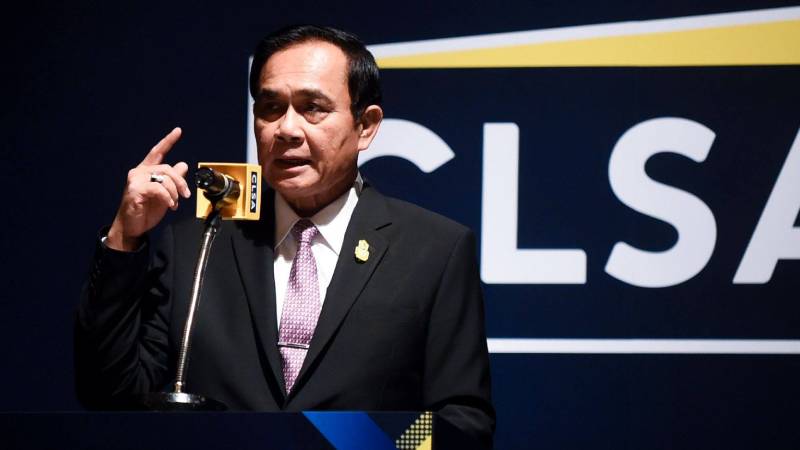Thailand’s junta chief batted away criticism of a controversial cyber-security law on Thursday, saying it would not be used to “tap phone calls”.
The country’s rubber-stamp parliament passed the bill on February 28, triggering pushback from rights groups and companies worried about privacy breaches.
Thais go to the polls on March 24 in an election that could see a junta-aligned government come to power, and with it more controls on freedom of expression.
The new bill allows authorities to seize any computers or devices without a court warrant if there are “critical threats” to cyber-security, which a committee determines in cases of “reasonable suspicion”.
The Asia Internet Coalition, an industry association representing companies like Google and Facebook, warned the law was too broadly worded and could give the government sweeping powers to snoop on user data.
But junta leader Prayut Chan-O-Cha, who seized power in 2014 and is standing for civilian premier in the election, tried to allay those fears in remarks to investors in Bangkok.
“When I talk about cybersecurity, don’t get this confused with human rights,” the gruff general said, adding that the law was meant to boost online business security.
“No one will tap phone calls of others,” he said.
“It’s about the protection of businesses… because there could be huge fraud or illegal businesses.”
Since it came into power, the junta has tried to stifle online dissent even as biting satire poking fun at the generals flourishes on the web.
Prayut — now attempting to remake his image via Instagram and Facebook to show off a softer, more people-friendly side — said the government now has “decreased power” thanks to social media.
“We cannot control public opinion now that social media controls (it) and everyone has access,” he said.
But Amnesty International’s Thailand campaigner Katherine Gerson said the cybersecurity law represents “a threat to freedom of expression and privacy”.
“Thai authorities have a track record of invoking ‘security’ to allow criminal proceedings against people who did nothing more than peacefully speak their mind,” Gerson told AFP.




